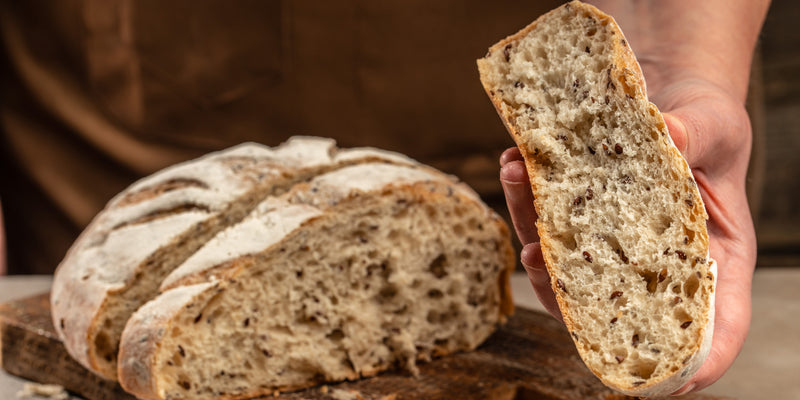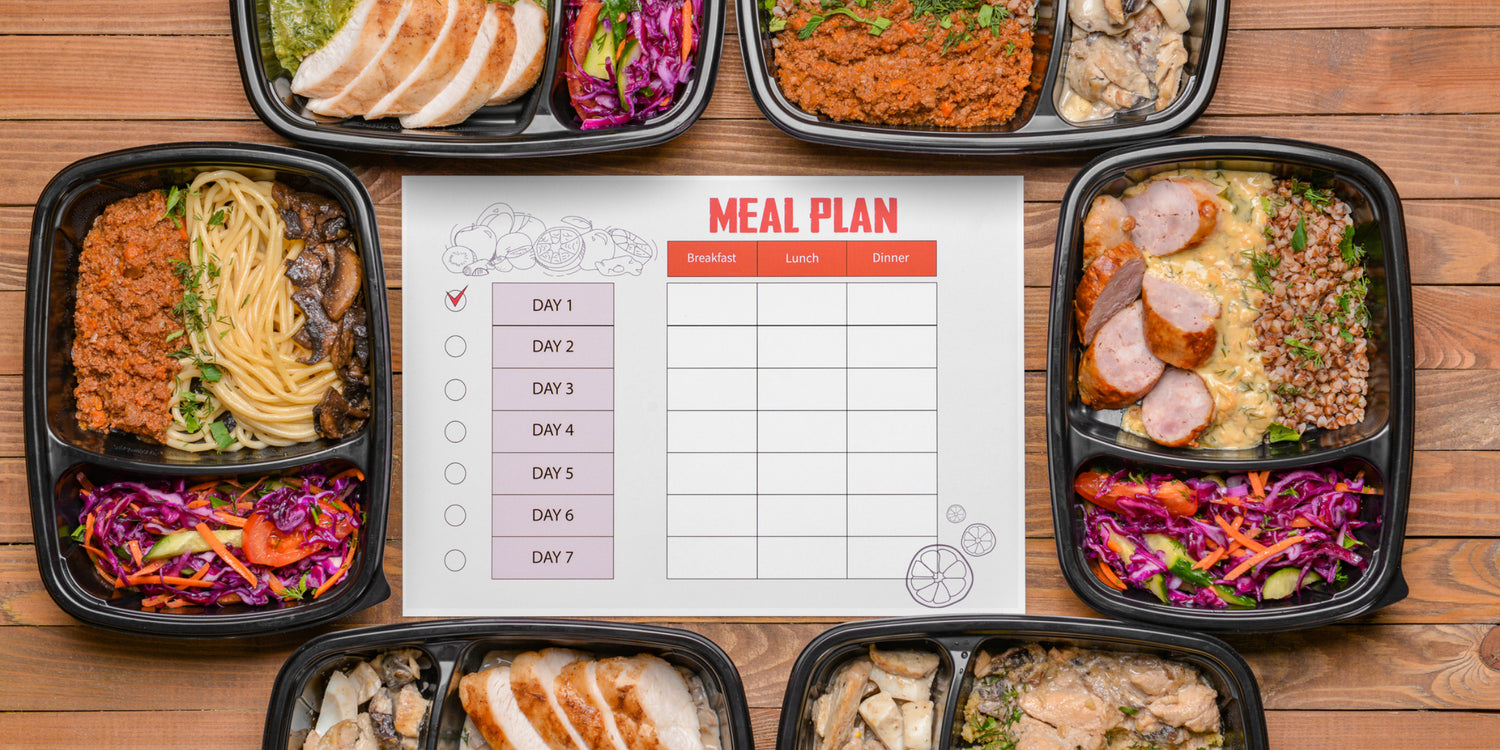Leg day at the gym is no joke. Squats, lunges, and deadlifts work your lower body muscles to the max, leaving your quads, hamstrings, and glutes sore for days. But if you want to see continued progress in the size and strength of your legs, proper nutrition is key.
So, let’s dive into the ideal meal plan to support muscular and healthy legs. With the right nutrition strategy, you can maximize the results of all that hard work you're putting in the gym.
Why Is Proper Nutrition Important When Doing Leg Workouts?

Proper nutrition plays a pivotal role in overall fitness and is especially crucial when engaging in leg workouts. Understanding the importance of nutrition in this context is vital for maximizing performance, optimizing muscular development, and enhancing recovery. Focusing on the right nutrients, timing of meals, and hydration levels can make a significant difference in the outcomes of leg workouts, allowing individuals to push their boundaries, prevent injuries, and achieve their fitness goals more effectively. Consequently, integrating the right nutrition plan with leg workouts enables enthusiasts to harness the full potential of their lower body, resulting in improved strength, endurance, and overall well-being.
How Does Proper Nutrition Support Muscle Growth and Metabolic Rate?
Proper nutrition plays a crucial role in supporting muscle growth and maintaining a healthy metabolic rate. By providing the body with the necessary nutrients, such as protein, carbohydrates, and fats, individuals can effectively fuel their muscles, repair damaged tissues, and enhance overall metabolic efficiency. Understanding the correlation between nutrition, muscle growth, and metabolic rate is fundamental for those looking to achieve their fitness goals and sustain a healthy lifestyle.
Protein is often considered the building block of muscle growth, making it an essential component of a proper nutrition plan. It provides the necessary amino acids to repair and build muscles after intense workouts. By consuming adequate amounts of protein, individuals can stimulate muscle protein synthesis, leading to the growth and maintenance of lean muscle mass. Additionally, protein aids in regulating metabolism by satisfying hunger, promoting feelings of fullness, and boosting the thermic effect of food, thus supporting overall energy expenditure.
Carbohydrates are the main source of fuel for the body. When consumed in the right quantities, they provide the energy required for intense workouts and ensure optimal muscle performance. Carbohydrates also aid in replenishing glycogen stores, preventing muscle fatigue, and enhancing recovery. Moreover, they help regulate the secretion of anabolic hormones, such as insulin, which influences muscle growth and repair.
While often misunderstood, fats are vital for muscle growth and metabolic support. They serve as the body's reserve fuel source and aid in the absorption of fat-soluble vitamins. Adequate intake of good fats, such as omega-3 fatty acids, promotes anti-inflammatory responses, which are essential for muscle recovery and growth. Fats also play a role in hormone production and regulation, including testosterone, which is critical for muscle development.
What Are the Key Nutrients for Muscle Growth?

The key nutrients for muscle growth include protein, calcium, vitamin D, iron, vitamin C, vitamin K, choline, and zinc.
To support muscle growth, key nutrients play a crucial role. These essential nutrients include:
Protein is vital for muscle growth as it stimulates muscle protein generation. Amino acids like Leucine are particularly important for maximizing protein synthesis for muscle gain.
Adequate intake of Calcium is essential for skeletal growth, and low intake during childhood can lead to decreased bone mass. Good sources include milk, cheese, nuts, and green leafy vegetables.
Vitamin D is crucial for bone health as it aids in Calcium and Phosphate synthesis. Sources include sunlight, fish, eggs, and milk products.
Iron is necessary for oxygen transportation in the body and muscle growth. Iron deficiency can impact tissue function, and it is especially important for children due to lower meat consumption in some diets.
Vitamin C is essential for connective tissue development and bone formation. Citrus fruits, kiwi, broccoli, and tomatoes are rich sources of this vitamin.
Vitamin K is important for bone health and bone mineral density. Green leafy vegetables like kale, brussels sprouts, and broccoli are good sources of this vitamin.
Choline is critical for central nervous system development and signaling in the body. Sources include eggs, meats, legumes, and wheat germ.
Zinc is essential for bone length and density, immune system function, and growth. Good sources include meat, cereals, grains, milk products, and fish.
Combining these nutrients through a balanced diet, along with proper exercise and rest, is key for maximizing muscle growth and development.
Why Is Proper Nutrition Crucial for Muscle Gain?
Proper nutrition plays a crucial role in achieving muscle gain and overall physical well-being. It is essential for improving physical and metabolic health, protecting joints from injury, enhancing balance, and reducing the risk of falls.
The right balance of nutrients is necessary for optimal muscle growth. Ingesting an adequate amount of calories is vital as it provides the energy needed for muscle repair and growth. Consuming sufficient protein, typically 1.6 to 2.2 grams per kilogram of body weight, is crucial as it supplies the essential building blocks for muscle tissue synthesis. Protein supports muscle recovery and prevents muscle breakdown during intense exercise.
Moderating fat intake, around 0.5 to 1.5 grams per kilogram of body weight, is essential as it provides long-term energy and aids in hormone production. Consuming healthy fats, such as those found in nuts, avocados, and olive oil, supports muscle gain and overall well-being.
Carbohydrates are necessary to fuel the body during resistance training. Consuming approximately 3.5 to 5 grams per kilogram of body weight ensures that there is ample glycogen stored in the muscles, which is critical for providing energy during workouts.
Proper nutrition not only provides the necessary nutrients for muscle growth, but it also improves metabolic health by regulating blood sugar levels, insulin sensitivity, and cholesterol levels. It supports joint protection by reducing inflammation and providing nutrients that help maintain joint integrity. Furthermore, it enhances balance and reduces the risk of falls, which is especially crucial for older individuals.
Meal Plan for Muscle Gain on Leg Day

When it comes to a meal plan for muscle gain on leg day, it's important to focus on consuming the right nutrients to support the growth and repair of your muscles.
Start your day with a hearty breakfast of 3 scrambled eggs paired with 1 cup of spinach, 1 cup of oatmeal made with milk, and a banana to provide a balance of protein, complex carbs, and healthy fats.
Immediately after your leg workout, refuel with a 40g whey protein shake blended with 1 cup of milk and pair it with 1 cup of Greek yogurt topped with 1/2 cup of berries.
For lunch, grill up 6 oz (about 170.1 g) of chicken breast, serve it over 1 cup of brown rice, and roast 1 cup of broccoli drizzled in 1 tbsp of olive oil.
In the afternoon, enjoy an apple with 2 tbsp of almond butter for an energizing snack.
Finally, end your day with a 6 oz (about 170.1 g) lean ground beef burger on a whole wheat bun, 1 cup of roasted sweet potato, and 1 cup of sautéed spinach.
This balanced meal plan packs in around 2,800 calories and 180g of protein to support muscle growth and recovery after an intense leg day workout.
Takeaway
Proper nutrition is essential for maximizing leg day workouts. By providing the body with the right balance of protein, carbohydrates, and healthy fats, individuals can fuel their muscles, support recovery, and promote muscle growth.
The key nutrients for muscle development include protein, calcium, vitamin D, iron, vitamin C, vitamin K, choline, and zinc. Consuming adequate amounts of these nutrients through a well-rounded diet is crucial for stimulating protein synthesis, regulating metabolism, and enhancing overall physical performance and well-being.
A sample meal plan for leg day focused on muscle gain includes a balance of nutrient-dense foods like eggs, oatmeal, chicken, beef, brown rice, sweet potatoes, and leafy greens. This type of plan supplies the body with the calories, protein, carbs, and healthy fats needed to build and maintain strong, muscular legs.
Ultimately, proper nutrition plays a pivotal role in supporting the hard work put in during leg workouts. By strategically planning meals and snacks, individuals can maximize their results, minimize the risk of injury, and achieve their fitness goals more effectively. Integrating the right nutrition plan with a dedicated leg day routine is the key to unlocking the full potential of the lower body.
Renpho Health Tips
-

Reach Your Nutrition Goals with These Powerhouse Nutrient Dense Picks
May 21, 2024
Read more >
-

Gamify Your Gym Time: Strategies to Make Your Workouts More Engaging and Fun
May 17, 2024
Read more >
-

Low Carb Alternatives for Weight Loss: Shedding Pounds Deliciously
May 15, 2024
Read more >
-

Relieve Stress and Enhance Relaxation: The Therapeutic Benefits of Compression Massage
May 14, 2024
Read more >
-

Pedal Your Way to Fitness: Exploring the Incredible Benefits of Exercise Bikes
May 8, 2024
Read more >
